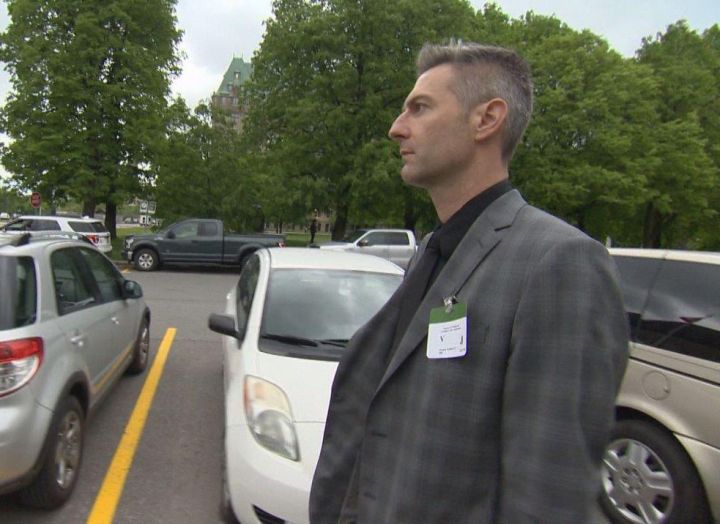Ahead of the high-profile triple murder trial of Derek Saretzky, there are renewed calls for increased supports for jurors.

The jury trial is scheduled to begin Wednesday in Lethbridge.
Saretzky is accused of three counts of first-degree murder in the deaths of a child, her father and a senior in Alberta’s Crowsnest Pass in 2015.
READ MORE: Jury chosen for Lethbridge trial of accused triple murderer Derek Saretzky
It’s the first time the disturbing details of the case will be made public.
Those who have experienced jury duty themselves say a graphic case like this can be life changing for those preforming this civic duty.
Mark Farrant was the jury foreman in the 2014 trial of Farshad Badakhshan, who was convicted of the second-degree murder of his girlfriend Carina Petrache.
Following the verdict he was diagnosed with post-traumatic stress disorder.
“You’re ingesting it over and over and over again and you don’t have an avenue to talk to somebody during the trial,” Farrant told Global News. “You have to remain silent and you’re not really supposed to talk about the evidence–even with other jurors in the panel, really-that has to be parked until deliberations.”
READ MORE: Ex-juror with PTSD heading to Parliament Hill to make case for trauma support
He said he’s now a shadow of the man he once was.
“I knew it was affecting me very early on. My behaviour began to change. My sleep patterns changed. I still get very little sleep.”
Farrant has started the #12angryletters campaign; he’s collected letters from 12 jurors from 12 different cases to highlight the impact.
“I’m asking you to show leadership and set a National Post-Trial Support Standard for all Canadians,” his letter reads. The letter has been sent to federal justice minister Jody Wilson-Raybould.
Currently, supports differ from province to province.
“I don’t want this to happen to somebody else. I believe in the justice system and I believe in the important civic duty that jurors perform but I also believe that we owe it to them to look after them post-trial,” Farrant said.
READ MORE: Horrific court cases can lead to PTSD for lawyers, jurors
Juror No. 11 in the letters spent two-and-a-half months hearing about the horrific death of eight-year-old Tori Stafford.
“It’s an abomination that doing our civic duty would lead to our lives being changed forever, and creating a living hell for our family. Why are the courts not taking care of us, when we are trying to take care of society in doing our civic duty????” the juror wrote.
Alberta Justice told Global News counselling packages are offered to all trial jurors free of charge. This includes a toll-free hotline number that connects them with a counsellor for assessment and four in-person counselling sessions that can be used anytime during the trial or up to two months after the trial ends. Additional sessions can be requested based on counsellor assessments.
But there’s a push for further support.
“During the trial, jurors are given specific instructions about only discussing what they are hearing and seeing when all of the other jurors are present in the room. You can’t talk about it with your spouse, you can’t talk about it with your friends,” forensic psychologist Dr. Patrick Baillie said.
Baillie believes individual and group counselling needs to be offered to all jurors. He also suggests greater financial support and brief paid vacations in particularly difficult cases.
“Research out of the United States shows up to 70 per cent of jurors post-trial will be experiencing post-anxiety related symptoms,” Baillie said. “These individuals are giving back to our society in a very significant way, and we are not doing enough to recognize that contribution.”
READ MORE: Alberta supporting jurors after mentally exhausting trials
Right now in Ontario, Farrant is paying for his counselling out of pocket.
With every new trial, he can’t help but think of the trauma those jurors will face.
“I’ve got two very young children and they’ve had to watch their father unravel and that’s hard…that’s hard. I’m doing this as much for them as I am for Canadians, really I just don’t want another family to have to go through what my family has gone through and continues to go through as a result of performing a civic duty,” he said.




Comments